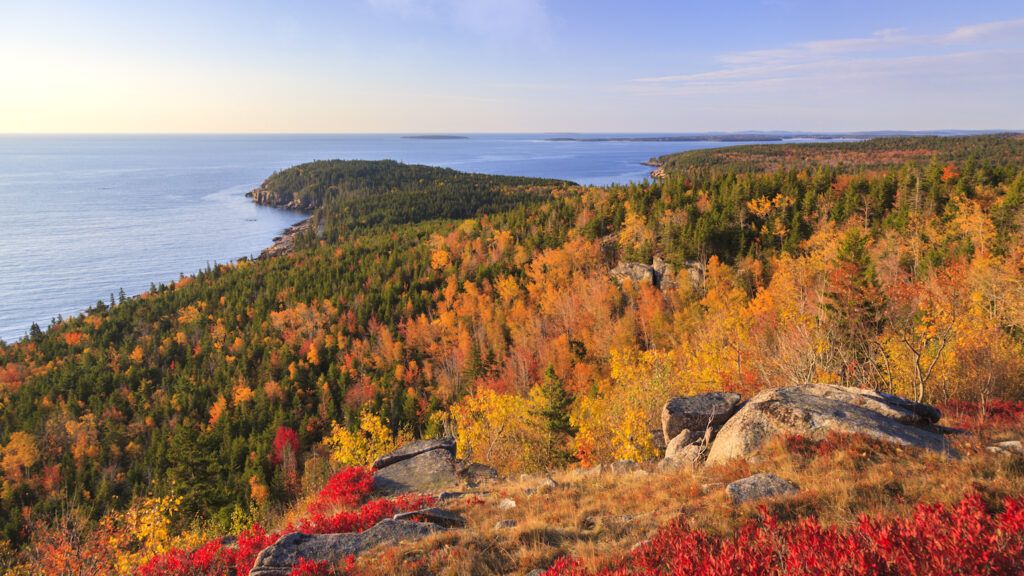Where I live in New England, fall leaves are an eagerly-anticipated annual delight. The changes start up north in New Hampshire, Vermont and Maine, then make their way south in all their brilliant, colorful glory.
One spot in Maine—Acadia National Park—is a leaf peeping destination like no other. People drive hours to see the stunning vistas’ shining moment. They drive the park’s roads, bike and hike through its lush, brilliant forests, sigh at the beauty of autumn leaves reflected in still lakes and breathe the bracing air of the chilled ocean.
This national treasure stands out to me for more than its natural beauty. To me, it represents the lasting, positive impact that an act of generosity can have on the world.
In the early 1900s, John D. Rockefeller, Jr., purchased a summer home in Seal Harbor, Maine, and fell in love with the rugged natural beauty of Mount Desert Island. Rockefeller was a supremely wealthy man, the son of Standard Oil founder John D. Rockefeller, Sr. Only a decade into his own career, Rockefeller Jr. resigned from the business world and turned his attention to philanthropic efforts. In his lifetime, he donated nearly $540 million to causes he cared about.
One of these was preserving the area that was designated first a national monument and eventually, in 1929, Acadia National Park. Rockefeller purchased tracts of land on Mount Desert Island, and designed and built 57 miles of elegant “carriage roads” that he hoped would minimize automobile traffic in the park. He eventually donated 11,000 acres of his land to the park, and worked with other wealthy landowners, including former Harvard president Charles W. Eliot, to encourage them to do the same.
This story shows the enduring impact a generous mindset can have on the world. Instead of holding their pieces of this beautiful planet all for themselves, Rockefeller and others devoted their time, energy and resources toward preserving that land for leaf-peepers, awe-seekers and all who have faith that the best world is the one everyone can enjoy.
A century later, each of us can benefit from their generosity—and perhaps we can also become inspired to find new ways to be generous ourselves, with our time, our money or simply our kindness.







